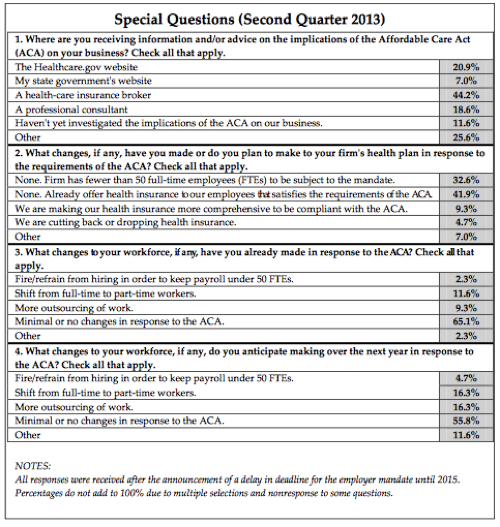There have been profoundly unserious worries about the effects of ObamaCare implementation on the labor market as well as serious worries by people like Jed Graham.
A correspondent sends me some results from a survey of employers suggesting more of a reluctance to hire than I would have guessed: that the negative that the health-care plans one currently offers may not meet the “bronze” standard of minimum essential benefits is, in employers’ current minds at least, slightly more of a minor negative factor than the positive that the coming of the exchanges means more opportunities due to less adverse selection is a minor positive factor:


105 words…
